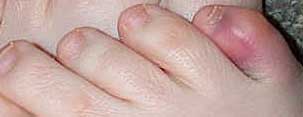Nov. 2004 - would like to un-reiterate, if such is possible, but am leaving this text in its original condition.
(to reiterate - with the exception of the coverage of this one case, The Union has become an exceedingly good source of information, I no longer find myself ripping hanks of pelage from scalp when reading it, it's been taking a stand on issues of
personal freedom and on
considering the consequences of our actions and on
defending civil public discourse; in short, it has become a newspaper to be proud of. Except for this one case...)
(relevant URLs: Weismann's letters to the editor of The Union,
Dreams end in desolation, `My parents never knew what hit them')
I would not want to be in the shoes of either Editor or Publisher of The Union. Covering William Weismann's attempt to get his neighbor killed is a no-win situation - when a prominent member of a group backed by a powerful faction in the county is arrested for something like this, the newspaper faces a choice between treating the alleged perp like any other arrestee and thereby antagonizing their advertising base and the county Powers That Be, or giving him more deferential treatment and thereby antagonizing those who expect the newspaper to aim for "big city" journalism quality.
It's further complicated by the fact that, while the person most responsible for The Union's financial health has political sympathies much in line with Weismann's, the person most responsible for the news reporting hails from the
Columbia UniversityUniversity of Missouri School of Journalism. (That they are still working together is a marvel, and says much for interpersonal skills.)
Given The Union's status as small town paper, it probably
is unrealistic to expect it to practice Big City Journalism in a case like this. If they want to treat Mr. Weismann gently, and omit mention of his inflammatory and revelatory letters (although analogous letters in the Herve "road rage" death case
were published), so be it - most likely the letters - and other salient facts - will come out eventually in court, be it criminal or civil.
It's one thing to go easy on Bill Weismann; it's another thing to cause harm to reputations, both of the man he wanted dead and of the man who alerted authorities, neither of whom is (presumably) free to respond until the case is settled; and it is worse yet, to defend these actions - and the detrimental effects of the reporting on the justice system - as though they were ethically above reproach.
Here's what I (in role of Monday morning quarterback) would have done differently:
I would not have published derogatory information about the man Mr. Weismann sought to have murdered, particularly information provided by Weismann or his family, friends, associates or attorney.
I would not defend the publishing of such information by saying "we tried to get the would-be-victim's side of the story, but he wouldn't talk to us".
* This excuse is either naive or disingenuous; until a case is settled, the District Attorney will instruct witnesses for the prosecution not to talk to the press, lest they jeopardize the upcoming trial. (if I'm wrong on this, please correct me.) So he
couldn't speak to the press, he was not free to do so. This doesn't mean the press gets carte blanche to cast aspersions on his character.
I would not have published a statement from one of Mr. Weismann's family members deliberately exposing negative information about the whistleblower's
** distant past, information that the court did not feel was germane to the case. This man too has presumably been told not to speak to the press until the case is settled, thus he too is currently not free to defend himself. Plus, for The Union to publish the info - even in the form of a quote from Weismann's daughter - shows disrespect for the legal system that sought to protect the whistleblower's privacy.
Regarding detrimental effects of the reporting on the justice system
***: readers were concerned that the coverage would taint the jury pool by giving potential jurors information (irrespective of bias and accuracy) about the case. The editor responded: "I doubt there will be a problem finding a jury for this case, if it goes to trial (and it's doubtful it will). There are plenty of news-averse people in Nevada County who have no clue who the president of the United States is, let alone Bill Weismann." OK. Granted, coverage or no coverage, those seats in the courtroom will be occupied by warm bodies. But will justice be served if the jurors must now be chosen from the most news-averse and clueless people in the county?
One more question for editor and publisher of The Union: if the whole truth does come out, and it shows Weismann's target and whistleblower to be the decent human beings that I suspect they are (and yes, i could be wrong) - will you pledge to apologize publicly to these two men?
The Union is a mighty fine paper these days. Here's hoping the coverage of the Weismann case is - and remains - an aberration. And that the truth
does come out.
* re one-sided story: true, it was also defended by saying (more or less) "we tried as hard as we could to get Wess's side of the story from court documents and statements of friends etc"; but this is weak, it's still not fair until Wess is free to speak in his own defense.
** There is probably a much better term to use here. What I mean is, the guy that Weismann approached about killing Wess.
*** There are detrimental effects of news coverage before a trial. There are also positive effects of news coverage before a trial. It's the denial that the former exist, that seems troublesome.






